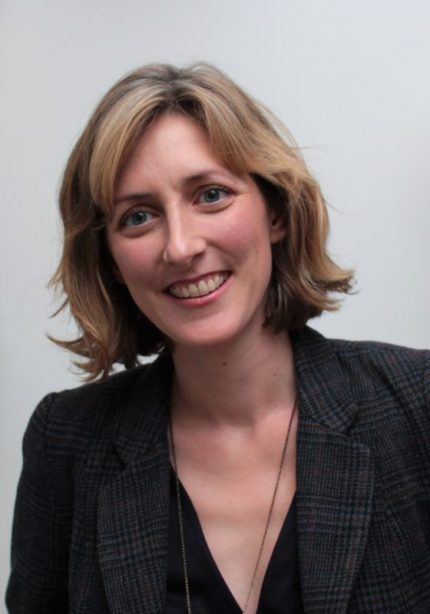What is the purpose of universities in the 21st century? In our last Wonkhe blog, we set out the principles of our 21st Century Lab, a project led by the University of Lincoln. A starting premise was the idea that, as a universitas – a melting pot of research, knowledge exchange and teaching activities – the university should be in a unique position to help society adapt to 21st century disruptions.
Today we are launching our first 21st Century Lab publication, Thinking Ahead. Based on interviews with intellectuals and thinkers from across the globe, it steps outside of the sector to ask what are the biggest challenges and opportunities of the 21st century? The responses bring us some fresh ideas and diverse perspectives.
I have suggested that one response to increased complexity, plurality and uncertainty could be the development of a multiversity, rather than a university. A changed institution that is able to work across divides both to support the lifelong reskilling of the population, as well as the issues of uneven adoption of technology … by developing further the role of technology diffusion in their work with local businesses.
Andy Haldane, Chief Economist, Bank of England
Challenges
This first publication does not seek to find one voice or perspective but rather to present different views about our world offering a provocation to the sector to think differently and to find new ways to support future generations. Despite the different views there are a number of clear themes that come through. Or what we like to think of as the six 21st Century Lab grand challenges:
- Unequal share of wealth: how do we find and share the opportunities of globalisation to counteract mistrust and discontent?
- Civic re-engagement: how do we nurture a more inclusive and connected society in an age of populism?
- Global collaboration: how can we nurture and develop an open and collaborative global society?
- Vision and foresight: how do we develop leaders that can look beyond the immediate and the everyday?
- Technological disruption: how do we support people, businesses and organisations to adopt, adapt and thrive?
- Mitigating environmental and ecological damage: how do we advocate for and then support the transition to a more sustainable way of life and a greener economy?
Insights
Our contributors not only posed the questions but also speculated on some possible ways forward:
Unequal share of wealth
The challenge is to improve the standard of living … essentially the government must be involved when you are looking at improving the quality of life for people with reduced bargaining power. It really does have to be about what they get from government.
Daryl Dixon, Executive Chairman, Dixon Advisory
Civic re-engagement
The real challenge is that our existing systems of representative democracy don’t meet the demands of the present era … we need to shift from purely representative democracy … to enable more direct democracy with ongoing participation by citizens … educationalists are going to have to become vastly more flexible and maintain the highest possible level of curiosity
Sean Cleary, Executive Vice-Chair, FutureWorld Foundation
Global collaboration
Collaboration is critical. Think about how cars today are made of components from different vendors in places all around the world. Content and knowledge are the same … educators need to think about how to bring all of this collaborative information and knowledge together, and how to work with different thinkers from different backgrounds.
Lake Dai, Partner, LDV Partners
Vision and foresight
All senior leaders in public service need to operate as system leaders and engage externally. They need to be able understand other organisations and sectors, and learn on behalf of the system. They need to be able to lead teams and build confidence in the process of leadership.
Victor Adebowale, Chief Executive, Turning Point
Technology and jobs
The Fourth Industrial Revolution means that we can automate, personalise, drive productivity, and be competitive without the same level of capital investment because, although these digital technologies are complicated, the cost of them is relatively low. So the technology driving this Fourth Industrial Revolution allows you to be very agile and allows a real flexibility between the human and the automated element.
Juergen Maier, Chief Executive, Siemens UK
Mitigating environmental damage
The decisions we make in the next 15 years will determine whether or not we avert the worst scenarios related to climate change. Yet this is also a century of unique opportunity. The technological improvements that we have seen … are huge … to make the world more efficient, more connected, and to really make the right choices so that we move into a more sustainable way of life and a greener economy.
Nick Molho, Executive Director, Aldersgate Group
Universities with renewed purpose
So how to respond to these six grand challenges? Universities have been responsible for creating the knowledge that is defining our world, and as such we believe that we must take up the responsibility to support society, for the benefit of all and our future generations, in this changing world. The provocations from our first publication, set out above, provide the framework for the next stage of our work.
We will engage colleagues from across the sector, undertaking seminars and focus groups, and establishing a reference group. Drawing all the evidence together this latter group will be tasked with helping us to produce recommendations on the purpose of universities in the 21st century. Thinking Ahead sets wide parameters as to what this work might explore but some early thoughts in relation to existing key activities are:
Higher education in a changing world
Along with other organisations, as a sector we need to explore new ways of engaging with our communities, opening up our assets – both physical and intellectual – to share and collaborate in order to engender trust with our communities. We need to take more responsibility for being open in many ways. Alongside the economic capital of being a graduate we have always been struck by the concepts of social and cultural capital and their role in social mobility. Thinking Ahead suggests a number of new ways in which we might need to reconstitute these more intangible skills. Could it be that we also need to equip our students with civic capital, environmental capital, global capital and technological capital? Can we enhance play and curiosity to instil a love of lifelong learning to support adaptability? Building on our work of Students as Producers, how might we better connect our teaching and research activities through the concept of near-to-teaching research so that our students explore and play alongside our researchers to connect with changes coming upstream?
Knowledge exchange through collaboration
Universities need to recognise that knowledge is much more dispersed in the 21st century. We need to learn from our businesses and together, through collaboration, develop new knowledge that can support institutions to adapt and embrace new technologies effectively. We need to engage and develop the skills of translators who can bridge the languages of the academy and the wider world.
Research and innovation beyond boundaries
Inter, multi and post-disciplinary knowledge is key to solving knotty global problems. We must move out of silos and transgress boundaries to think about global, inter-institutional and cross-sector collaboration. How can we play a leadership role through our research in order to slow things down, in very fast times, so that we can help to answer the big, deep, long-term questions?
The civic university reinvented
There are many thoughts throughout the publication about the changing nature of society and the challenges of civic engagement. As the purpose of a university adapts and changes, we need to examine our role in placemaking. What are the new ways of connecting in a digital age? How might geography and virtual reality combine? How do we open up and support the publics who inhabit these cross cutting but different worlds?
Stepping outside of the sector for Thinking Ahead has been such a valuable exercise. We are excited to bring these provocations back into the sector at this crucial time, when we need to think beyond and outside of our day to day. We look forward to engaging with a range of universities, policy makers, from across the UK and beyond, as we enter the next phase of our work.














The authors presume that Universities are natural places from which to address the broad societal challenges they describe. However, there are strong forces pushing the other way. The UK government focuses on specific metrics and uses them to fund higher education. The REF encourages lots of incremental activities rather than long-sighted deep thinking. The TEF is being bent towards near-term employability and income objectives. International University rankings focus heavily on the same incremental research outcomes as does the UK REF. Add to this the fact that Universities are very conservative and resistant to innovation in their own operations and the… Read more »
The six grand lab challenges would not go amiss as a blueprint for a political party. Perhaps the list might be reduced and re-stated as follows: 1) To ensure that basic research that, if left to the market, will not be done is done in ways that avoid duplication of effort and negative effects of competition. One priority might be development of new antibiotics, by way of example. 2) To ensure that training and personal development that, if left to employers to organise, will be under-invested in is invested in sufficiently so as to develop human capital. In the past,… Read more »
This is virtue signalling and nothing more. I’m astounded at the sheer hubris of thinking this is anything close to ‘new’ thinking. Welcome to 2019 Mary. I wish Wonkhe would move away from articles which say “we need to do X” to articles which say “we did, Y and this is what we learnt”.